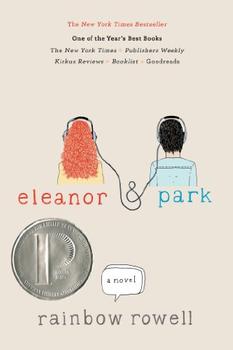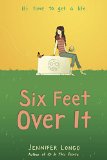Summary | Excerpt | Reviews | Beyond the book | Read-Alikes | Genres & Themes | Author Bio

Dark Water is based on true events. In an interview on Random Buzz, Laura McNeal said, "We were returning to our home in Fallbrook after a wildfire destroyed more than 200 houses there. We hadn't been allowed to enter our neighborhood for eight days, so it was pretty shocking to arrive and see whole hillsides of burned avocado groves, solitary chimneys, black eucalyptus trees, and deep, drifting ash." The plot of the book, she said, came from an actual rumor that spread through the migrant workers in her community. Many of them wouldn't evacuate during the fire because they were afraid that the border patrol would apprehend them.
And so the devastating fires, the fear of being deported, and the incredible danger when those two things collide - these are all true. Many books are based on true events, of course, but the specificity of Dark Water's plot and the lyrical, haunting way that Laura McNeal tells it, create a mesmerizing, page-turning, stays-with-you kind of story.
She vividly describes the rich landscape of Fallbrook, California in passages like, "But on that April day the trees outside the guesthouse spread their green fluttering limbs high above my head" and "I stood in the river up to my knees and let the water flow soft and cold around me until I felt, for just a second, that I was moving and the water was still." Her language mirrors the lush foliage and lyrical river, so it is easy for readers to see and hear and feel the landscape clearly.
Laura McNeal successfully uses first person point of view. Dark Water is Pearl's story - we see it through her eyes, and, even more specifically, we see it after it has happened, as she is telling a story from the past. First person narrators are often unreliable, but Pearl is trustworthy. She processes information thoroughly, and she examines her landscape, her actions, and the actions of others deeply. All of these traits, along with her likeable ability to follow her heart and use her head, make Pearl a sympathetic character.
Finally, Dark Water's short chapters well serve the novel's multiple storylines. Pearl deals with her estranged father, her troubled mother, and her cousin's accusations against her uncle, as well as her love for Amiel. All of these pieces of her life are relevant to the story, but none of them connect together. Pearl's life is compartmentalized. The novel's short chapters parallel that disjointedness beautifully and make the disparate plot points easy to follow.
In the end, Dark Water really is like Pearl. It is full of heart, and it is full of brains too. Because of this, it touches the reader's heart and asks the reader to think. It is complicated, doesn't offer easy answers, and its vital, true-life issues beg to be discussed.
![]() This review was originally published in The BookBrowse Review in November 2010, and has been updated for the
November 2011 edition.
Click here to go to this issue.
This review was originally published in The BookBrowse Review in November 2010, and has been updated for the
November 2011 edition.
Click here to go to this issue.

If you liked Dark Water, try these:

by Rainbow Rowell
Published 2020
Set over the course of one school year in 1986, this is the story of two star-crossed misfits - smart enough to know that first love almost never lasts, but brave and desperate enough to try. When Eleanor meets Park, you'll remember your own first love - and just how hard it pulled you under.

by Jennifer Longo
Published 2016
Darkly humorous and heart-wrenchingly beautiful, Jennifer Longo's YA debut about a girl stuck living in a cemetery will change the way you look at life, death, and love.
Your guide toexceptional books
BookBrowse seeks out and recommends the best in contemporary fiction and nonfiction—books that not only engage and entertain but also deepen our understanding of ourselves and the world around us.